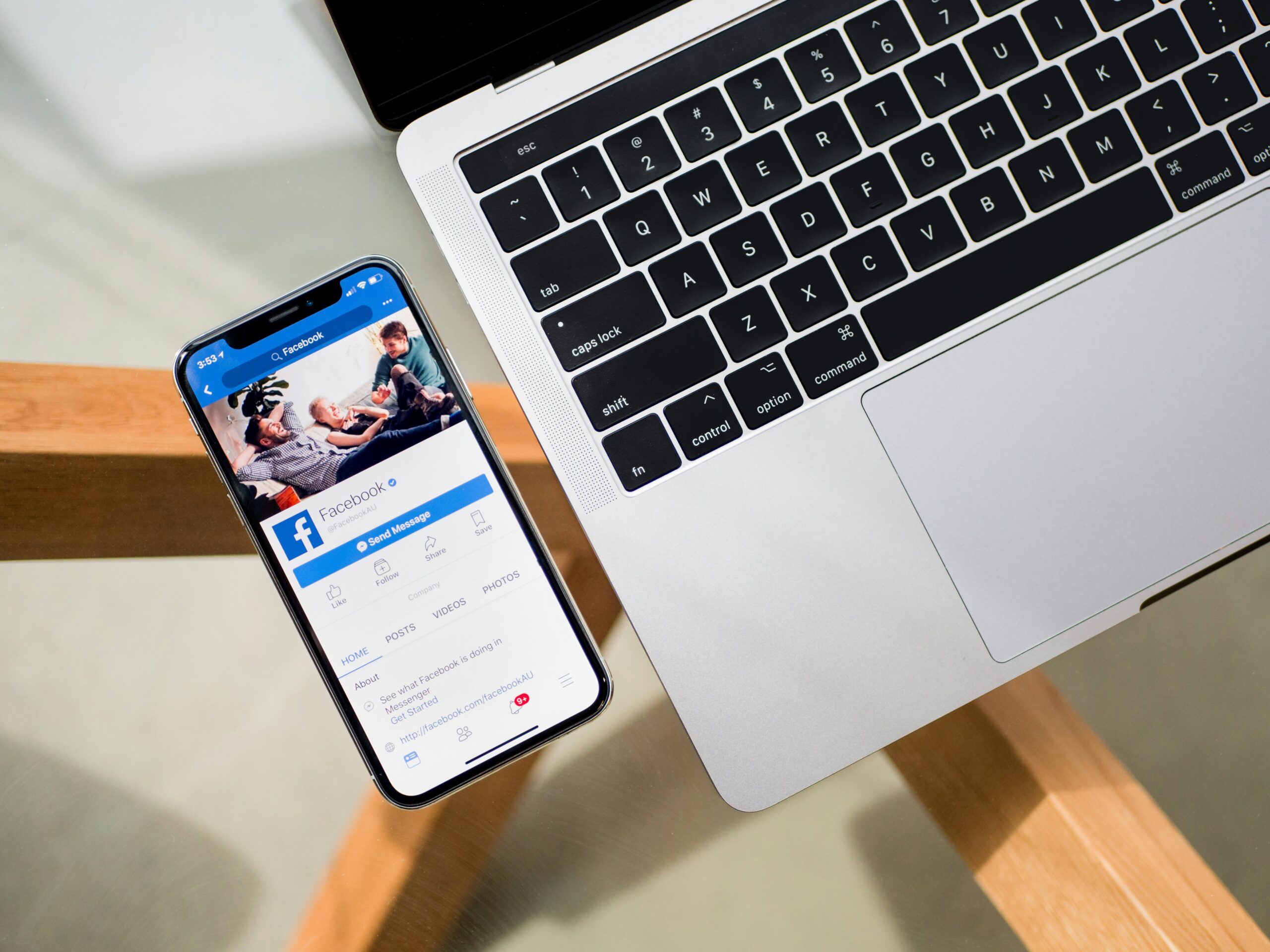The Impact of Social Media on Body Image and Sexual Confidence: Navigating the Digital World

Introduction to Body Image and Sexual Confidence
Body image refers to an individual’s perception of the aesthetics and functionality of their own body. It encompasses feelings, thoughts, and beliefs about one’s physical attributes, and can significantly impact a person’s self-esteem and overall well-being. A positive body image is characterized by acceptance and appreciation of one’s body, leading to higher levels of self-confidence and satisfaction. Conversely, a negative body image can provoke feelings of inadequacy, anxiety, and insecurity, potentially resulting in adverse mental health outcomes.
Sexual confidence, on the other hand, denotes an individual’s comfort with their sexuality and body in intimate settings. It reflects one’s ability to embrace their sexual identity, express desires openly, and engage in sexual activity without self-consciousness. Sexual confidence is closely linked to body image; when individuals feel good about their appearance, they are more likely to express themselves authentically in intimate situations. The interplay between body image and sexual confidence can be crucial in cultivating fulfilling relationships and enhancing overall life satisfaction.
In the digital age, the relevance of body image and sexual confidence has gained new dimensions, particularly due to the pervasive influence of social media. Platforms that emphasize visual content can shape people’s perceptions of beauty and norms surrounding sexuality, often perpetuating unrealistic standards. The continuous exposure to curated and filtered images can affect individuals’ self-worth and body image, heightening feelings of dissatisfaction and inadequacy. Understanding body image and sexual confidence is vital for individuals striving to navigate the complex relationships formed within the digital space.
The Role of Social Media in Shaping Body Image
Social media plays a significant role in shaping individual perceptions of body image. Platforms such as Instagram, Snapchat, and TikTok encourage users to share visually appealing content, which often propagates idealized body standards. These standards, frequently characterized by unrealistic expectations surrounding body shape and size, contribute to a prevalent culture of comparison among users. Studies indicate that engagement with idealized images can lead to increased feelings of inadequacy and dissatisfaction regarding one’s own body. For example, a study published in the journal Body Image found that young women who frequently consumed social media content featuring “fitspiration” images reported higher levels of body dissatisfaction.
The influence of filters and editing tools further complicates the way individuals perceive body image. Many social media users utilize these features, enhancing their appearance in ways that are unattainable in real life. This curation of images fosters an illusion that can skew self-image and set a standard that may be impossible for many to achieve. Research has highlighted a direct correlation between the hours spent on visual social media platforms and heightened body dissatisfaction. A survey conducted by the American Psychological Association found that 55% of participants felt pressure to conform to social media representations of beauty, leading to detrimental effects on self-esteem across various demographics.
Additionally, the phenomenon of constant social comparison has become ingrained in social media culture. Users routinely compare their lives—and subsequently their bodies—to those they see online. This practice is not only isolating but also hazardous to one’s mental health. A meta-analysis in the journal Psychological Bulletin suggests that frequent engagement in social comparison on social media correlates with increased anxiety and depression levels. As such, it is paramount to understand how the dynamics of social media can influence body image and sexual confidence, affecting mental well-being and self-perception in profound ways.
The Link Between Social Media and Sexual Confidence
In recent years, the influence of social media on the development of sexual confidence has become increasingly prominent. Various platforms provide users with a space to express their sexuality, but they simultaneously present challenges that can affect self-perception and sexual self-esteem. The portrayal of sexuality online often emphasizes unrealistic standards, leading individuals to compare themselves to curated images and lifestyles that may not reflect reality. This phenomenon can diminish personal confidence, as individuals may feel inadequate or less desirable when measured against these idealized representations.
Furthermore, the notion of consent has taken on new dimensions in the online landscape. Social media can foster an environment where sexual encounters are discussed and shared, sometimes enhancing the perception of empowerment. However, it is essential that users recognize the importance of consensual sharing of personal experiences and images. The blurred lines of consent can lead to complications, where individuals may feel pressured to participate in activities that do not align with their values or comfort zones. This tension can ultimately undermine an individual’s sexual confidence, as they may struggle to assert their boundaries in both digital and physical spaces.
The impact of social media interactions, such as likes and comments, further complicates this relationship. While positive reinforcement through recognition can bolster a sense of sexual confidence, negative feedback or lack of engagement can trigger self-doubt. Studies suggest that the number of likes or affirming comments can directly influence an individual’s perception of their attractiveness and desirability. Additionally, anecdotal evidence supports the notion that social media can sometimes lead to an echo chamber of affirmations and criticisms, which can skew how users perceive their sexual attractiveness.
Ultimately, social media plays a crucial role in shaping sexual confidence, both positively and negatively. It is essential for individuals to navigate these digital waters mindfully, cultivating a sense of self that is resilient to external validations or criticisms.
The Psychological Effects of Negative Body Image and Low Sexual Confidence
Negative body image and low sexual confidence have been linked to a variety of psychological issues that can significantly impact an individual’s mental health and overall well-being. The rise of social media platforms has exacerbated these concerns, as users are often bombarded with unrealistic portrayals of beauty and sexuality. Research indicates that frequent exposure to such curated content can lead to heightened levels of anxiety and depression among individuals, particularly adolescents and young adults. A study published in the “Journal of Adolescence” found that teenagers who regularly engage with idealized images on social media are more likely to experience negative self-perception and lower self-esteem.
Moreover, the constant comparison that occurs on social media can contribute to a detrimental cycle of inadequacy. Users may feel their bodies do not measure up to the seemingly perfect figures they see online, resulting in feelings of worthlessness and self-doubt. As noted in a survey conducted by the American Psychological Association, individuals with poor body image often engage in maladaptive behaviors, such as excessive dieting or taking part in strenuous workout regimens, which can further perpetuate their negative feelings about themselves.
In addition to anxiety and depression, low sexual confidence can manifest in various ways. Individuals may experience a fear of intimacy, difficulty in forming relationships, or avoidance of sexual situations due to feelings of shame or embarrassment regarding their bodies. A study in the “Archives of Sexual Behavior” demonstrates a correlation between low sexual confidence and an increased risk of sexual dysfunction, emphasizing the need for a holistic approach to address both body image and confidence issues. The interconnectivity of these psychological ramifications necessitates further exploration and intervention, particularly in the context of social media’s pervasive influence on today’s youth.
Cultivating Positivity: Changing the Narrative on Social Media
The impact of social media on body image and sexual confidence is significant, and fostering a positive narrative is crucial. One effective strategy for cultivating a supportive environment is to actively follow body-positive influencers. These individuals not only share their own experiences with body image but also promote messages of self-acceptance and empowerment. By engaging with their content, individuals can counteract the often unrealistic portrayals of beauty that dominate social media, leading to a healthier perspective on one’s own body.
In addition to following body-positive influencers, curating one’s feed to include uplifting content is vital. Users can take control of their social media experience by unfollowing accounts that perpetuate negativity or unrealistic standards. Instead, curating a feed filled with diverse representations of body types and sexual expressions can foster a sense of belonging. This process not only reinforces positive self-image but also encourages users to appreciate the beauty of diversity in all its forms.
Finally, fostering a community that embraces various body types and expressions of sexuality is key to changing the prevailing narrative on social media. Engaging in conversations that celebrate individuality, sharing personal stories, or participating in supportive groups can create a more inclusive environment. This sense of community not only provides validation but also helps individuals feel less isolated in their struggles with body image and confidence.
Through these strategic actions—following body-positive influencers, curating an uplifting feed, and fostering supportive communities—individuals can significantly change the narrative of their social media experience. By intentionally surrounding themselves with positivity, they can build resilience against the damaging effects of unrealistic standards and enhance their overall well-being.
Practical Tips for Navigating Social Media Safely
In the contemporary digital landscape, social media has become a defining platform for self-expression and interaction. However, its pervasive nature can often lead to negative implications for body image and sexual confidence. To navigate this complex terrain safely, it is essential to implement practical strategies that foster a healthier relationship with social media.
One effective approach is to set clear boundaries regarding social media usage. Designating specific times for checking personal accounts can prevent mindless scrolling, which often leads to comparisons and feelings of inadequacy. Establishing these limits allows individuals to engage with content more consciously, reducing the influence of negative portrayals on their self-esteem.
Taking regular breaks from social media is another crucial technique. Whether it’s a digital detox for a few days or implementing “no phone” zones during particular times of the day, these breaks can rejuvenate the mind and reinforce a positive self-image. This allows individuals to disconnect from the constant barrage of curated images and messages that can distort their perceptions of body confidence.
It is also vital to cultivate a critical eye when consuming digital media. Engaging actively—rather than passively—can aid individuals in recognizing harmful content. This includes unfollowing accounts that promote unrealistic body standards or negatively impact one’s self-worth. Seeking out diverse representations of beauty and body positivity can significantly enhance one’s experience on social media platforms.
Moreover, utilizing tools such as content filters and privacy settings can create a safer online environment. By curating one’s feed to prioritize uplifting and supportive communities, users can promote a more positive dialogue around body image and self-acceptance. Developing these habits is essential in navigating the intricacies of social media while safeguarding mental health and enhancing sexual confidence.
Building Resilience Against Social Media Influences
In an era where social media permeates everyday life, building resilience against its potentially negative impacts on body image and sexual confidence is of paramount importance. One effective strategy is the practice of self-affirmation techniques. Self-affirmation encourages individuals to focus on their core values and personal strengths, promoting a positive self-image that counteracts negative messages encountered online. By regularly engaging in self-affirmation, individuals can cultivate a sense of self-worth that is less susceptible to the unrealistic portrayals often found on social media platforms.
Another pivotal practice is mindfulness. Mindfulness involves being present in the moment and promotes an awareness of one’s thoughts and feelings without judgment. Engaging in mindfulness techniques, such as meditation or deep breathing exercises, can help individuals recognize and detach from social media influences that trigger negative self-perceptions. By incorporating mindfulness into daily routines, individuals can develop a healthier relationship with social media, fostering an internal narrative that emphasizes self-acceptance and resilience.
Moreover, engaging in activities that bolster real-life connections and self-esteem can greatly enhance an individual’s resilience. Participating in community service, joining clubs, or simply nurturing relationships with friends and family provides opportunities for genuine interactions that affirm one’s identity beyond the digital realm. Such engagements can strengthen self-esteem and create a support system that helps counteract the negative impact of social media. Cultivating hobbies and passions that excite and fulfill individuals also offers an avenue for self-expression and validation, steering focus away from harmful online comparisons.
In essence, building resilience against social media influences requires a multifaceted approach, incorporating self-affirmation, mindfulness, and meaningful real-life interactions. By fostering these practices, individuals can navigate the complexities of the digital world with greater confidence and a more positive body image.
Real-Life Success Stories: Overcoming Challenges
In examining the impact of social media on body image and sexual confidence, it is crucial to highlight the stories of individuals who have successfully navigated these challenges. Many people have found themselves grappling with the unrealistic beauty standards perpetuated by social media platforms, yet some have emerged stronger and more confident. Their journeys serve as an inspiration to others facing similar struggles.
One compelling account is that of Sarah, a young woman who felt pressured to conform to the beauty ideals showcased on various social media channels. Initially, she experienced anxiety about her appearance, frequently comparing herself to influencers and celebrities. This persistent comparison began to take a toll on her self-esteem. However, through a commitment to self-reflection and acceptance, Sarah decided to unfollow accounts that promoted unhealthy beauty standards. By curating her feed with positive content that celebrated diversity and authenticity, she gradually shifted her mindset. Today, Sarah advocates for body positivity and encourages others to embrace their individuality, thus reclaiming her confidence.
Another motivating story is that of James, who struggled with feelings of inadequacy regarding his body image, exacerbated by the filter-enhanced images shared on social media. Initially, this led him to an unhealthy fixation on fitness and diet trends in search of an idealized physique. However, after seeking professional guidance and engaging in community support groups, James learned to appreciate his own body and recognize the importance of mental wellness. He now shares his journey on social media, emphasizing the importance of self-care and celebrating various body types. His willingness to be vulnerable and open resonates deeply with his followers, inspiring many to embark on their paths toward self-acceptance.
These narratives exemplify the profound motivations and transformations that can arise from confronting the challenges posed by social media. By recognizing harmful influences and embracing self-acceptance, individuals can overcome adversity and cultivate a healthier relationship with their body image and sexual confidence.
Conclusion: Embracing Your Authentic Self in a Digital Age
In the rapidly evolving landscape of social media, the influence it exerts on body image and sexual confidence cannot be underestimated. As individuals navigate through a myriad of curated online personas, it becomes increasingly challenging to discern authenticity from illusion. The pressures to conform to idealized standards of beauty and desirability can significantly impact one’s self-perception, often leading to diminished confidence and negative body image. However, it is crucial to recognize that social media is just one facet of a much larger reality.
To embrace one’s authentic self in this digital era, it is vital to cultivate a mindset rooted in self-acceptance and awareness. By becoming mindful consumers of digital content, individuals can critically assess the messages they are absorbing and their potential implications on personal body image and sexual confidence. This begins with curating a feed that aligns with diverse representations of beauty and body types, fostering a more inclusive environment that values individuality and self-worth above conforming to societal norms.
Moreover, practicing self-compassion is essential in mitigating the effects of external pressures. Individuals should be encouraged to celebrate their unique features and experiences rather than comparing themselves to the often unrealistic portrayals found on social media platforms. Engaging in conversations about body positivity and self-acceptance can further dismantle the harmful narratives that pervade the digital space.
Ultimately, the journey to embracing one’s authentic self requires ongoing reflection and connection with a supportive community. As we navigate this digital age, prioritizing mental well-being and personal authenticity can cultivate a healthier relationship with one’s body and enhance sexual confidence, allowing individuals to thrive beyond the confines of social media expectations.


























Leave a Reply